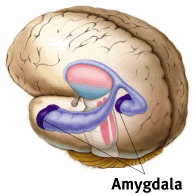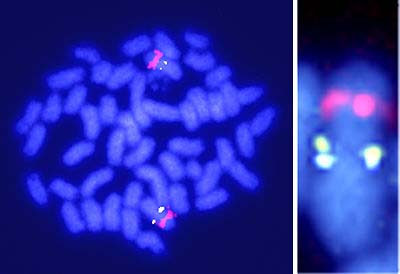Sponsor : www.lustnews.blogspot.com  Sexual orientation seems to be wired into the brains of nematode worms, and tweaking this sexual wiring can result in worms attracted to members of the same sex.Biologists at the University of Utah have engineered worms that are attracted to worms of the same sex, bolstering evidence that sexual orientation may be hard-wired in the brain.
Sexual orientation seems to be wired into the brains of nematode worms, and tweaking this sexual wiring can result in worms attracted to members of the same sex.Biologists at the University of Utah have engineered worms that are attracted to worms of the same sex, bolstering evidence that sexual orientation may be hard-wired in the brain.
"The conclusion is that sexual attraction is wired into brain circuits common to both sexes of worms," said researcher Erik Jorgensen, scientific director of the Brain Institute at the University of Utah and an investigator with the Howard Hughes Medical Institute.
The blue spot on the left contains sexual attractants from nematode worms that are hermaphrodites, or have male and female organs. The other spot does not. (Courtesy of the University of Utah )
While the study involved only worms, Jorgensen and his colleagues considered how the results shed light on sexual attraction throughout the animal kingdom.
"We cannot say what this means for human sexual orientation, but it raises the possibility that sexual preference is wired in the brain," Jorgensen said. "Humans are subject to evolutionary forces just like worms. It seems possible that if sexual orientation is genetically wired in worms, it would be in people too."
Sensual scents
While most nematode worms (Caenorhabditis elegans) are hermaphrodites, having both male and female sex organs, one in 500 nematodes is a true male.
The hermaphrodites are essentially females," said lead study author Jamie White, a member of Jorgensen's lab. "It just turns out they make a little bit of sperm during development that they store to fertilize their own eggs."
The ability to reproduce without a mate is crucial for the slender worms, which reside in the soil, where it's hit or miss as to whether they come across a sporadic bacteria bloom - a meal.
This way, when a lone worm spots such a feast, it doesn't have to wait around for a mate to take advantage of the nutrition and reproduce.
Male nematodes, however, must seek out a mate in order to reproduce.
Since like all nematodes the males lack eyes, they sniff out sex-attractant odors called pheromones to find potential mates.
This olfactory obligation could explain why males have a nervous system that includes eight sensory neurons (out of 383 total nerve cells) that aid in pheromone detection.
Female nematodes, however, only have four of these sensory neurons, general sensory neurons which they use for finding food and other sweet-smelling substances.
Sex change
Jorgensen and his colleagues were interested in finding out how the nervous system, which is directed by genetics, affected the sexual behaviors of the worms.
The researchers activated the so-called "fem-3" gene in the brains of hermaphrodite worms.
The gene is responsible for the development of male-specific features of cells in the body and nervous system, but the scientists only switched on those in the worms' brain cells.
"The body cells are expressing the genes it normally would in the hermaphrodite," White told LiveScience. "The neurons themselves - we flipped this genetic switch to turn them into male."
Before the brain-sex change, the hermaphrodites showed no interest in the pheromones of other hermaphrodites - members of their own sex.
The genetically altered hermaphrodites (or transgender ones), however, crawled toward the same-sex scents.
Most of the transgender worms still lacked the male-specific sensory neurons, even though the fem-3 gene was activated.
White suggests they relied on the four general sensory neurons for pheromone sniffing.
The study is detailed online today in the journal Current Biology.

 There are some feelings we have when infatuated that we don't have when we're feeling love. Some of the "symptoms" of infatuation are; feelings of panic, uncertainty, overpowering lust, feverish excitement, impatience, and/or jealously.
There are some feelings we have when infatuated that we don't have when we're feeling love. Some of the "symptoms" of infatuation are; feelings of panic, uncertainty, overpowering lust, feverish excitement, impatience, and/or jealously. "I think [the study is] very cool," said Ronald See at the Medical University of South Carolina, who was not involved in this research. The investigators have established a simple method for teasing out sex and hormonal differences that can now be applied to behavioral tests, he said.
"I think [the study is] very cool," said Ronald See at the Medical University of South Carolina, who was not involved in this research. The investigators have established a simple method for teasing out sex and hormonal differences that can now be applied to behavioral tests, he said.


 The inordinate craving for, or indulgence of, the carnal pleasure which is experienced in the human organs of generation.
The inordinate craving for, or indulgence of, the carnal pleasure which is experienced in the human organs of generation.
